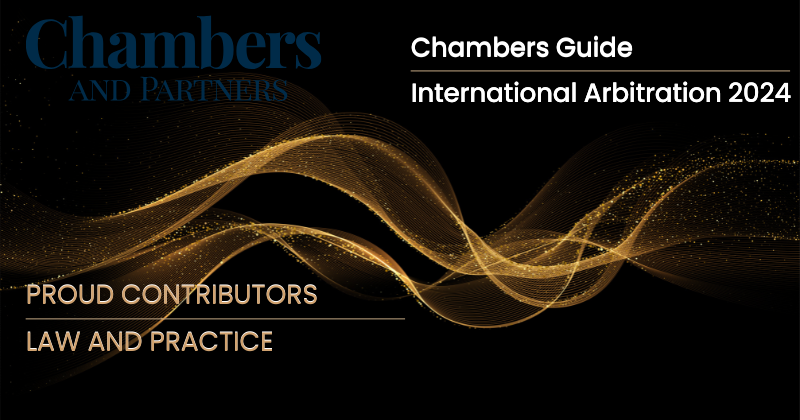As was aptly stated by the distinguished American statesman, Benjamin Franklin, “in this world, nothing is certain except death and taxes”. Despite the certainty of death, a large number of Kenyans are notoriously hesitant when it comes to conversations relating to death, as it is line with African culture to eschew the contemplation of death as a taboo topic. As such, it is commonplace for many Kenyans to die intestate i.e., without having written a will. This alert provides an overview of the options available to people with respect to planning their Estate (which means the free property that one would leave behind in the event of death), with a particular focus on setting up a trust as an alternative to writing a will.
Estate Planning
Estate planning entails disposal of assets in an Estate in structured manner and goes beyond making decisions as to who will benefit from one’s property. It can also involve planning for a person’s incapacitation or illness. The aim of Estate planning is to reduce the uncertainties with respect to what fate would befall one’s Estate upon death. In this alert, we shall discuss the following two (2) Estate planning options: preparing a will, but only to the extent of contrasting the same against setting up a trust.
Wills
A will is defined under section 3 of the Law of Succession Act (Cap. 160) Laws of Kenya as a “…legal declaration by a person of his wishes or intentions regarding the disposition of his property after his death…”. This definition is two-fold: first, it confirms that the transfer of property can only take effect after the death of the testator i.e., the person writing the will. Secondly, it anticipates the complete transfer of proprietary interest in the asset to the beneficiary, which means the beneficiary should be able to deal with the asset in any way he or she deems fit.
A major drawback of relying on a will as the mode of disposition of one’s property upon death is that the will would be subject to the Probate and Administration court process which can be lengthy and open to challenge. Objections as to the validity of the will and whether the will adequately provides for all dependants may arise once an application for Grant of Probate is published in the Kenya Gazette. The objections manifest in protracted court battles between various parties including named executors of the will, beneficiaries of the Estate and even outsiders who purport to lay claim to the assets of the Estate.
Trusts
Creating a trust is an alternative to disposing of an Estate vide a will. Generally, a trust is an arrangement that creates a relationship between the following parties:
- the person transferring the property, who is known as the ‘settlor’;
- the person who is appointed to hold the property for the benefit of a third party, who is known as the ‘trustee’; and
- the third party who receives the benefit of the property transferred, known as the ‘beneficiary’.
In Kenya, trusts are governed by the Trustees Act (Cap. 167) Laws of Kenya and the Trustees (Perpetual Succession) Act, (Cap. 164) Laws of Kenya. Trusts are created through a Trust Deed, which is an instrument governing the relationship between the settlor and the trustee. The Trust Deed spells out the objects of the trust, the properties held under the trust, the power of the trustees, and the administration of the trust. The Trust Deed as an instrument is, in itself, proof of ownership of properties in the trust. For the same to take effect, it ought to be registered and stamped by the Lands Registry in accordance with the Registration of Documents Act (Cap. 285) Laws of Kenya.
The salient features of a valid trust are that there is a certainty of intention to create the same which is evidenced by the provisions of a Trust Deed. Additionally, there is certainty of the subject matter where the property owned by the trust is clearly defined and easily identified. Lastly, there is certainty in the objects which requires that the beneficiaries thereto are also easily identifiable.
In contrast to wills, trusts (apart from testamentary trusts) are operational during the lifetime of the settlor and as soon as the same are registered. This means that they are not subject to Probate and Administration court process because once the property is transferred to the trust, the same is no longer considered as part of the settlor’s Estate. As a result, creation of trusts accords some level of privacy as such arrangements are not a matter of public record, unlike wills. Trusts are further contrasted to wills in that a settlor may also be a beneficiary of a trust they have created, thereby benefitting from the property in the share they deem fit.
Where the trust has been incorporated in accordance with the Trustees (Perpetual Succession) Act, it gains a separate legal personality which protects the assets therein from any lawsuits by creditors that may arise against the settlor in his personal capacity. Whereas with respect to transferring property through wills, creditors may sue the Estate in a bid to recover debts owed by the testator.
However, one drawback of creating a trust is that setting up the same is potentially complex and costly. A settlor would need professional advice in setting up the structure of the trust, drafting the Trust Deed, undertaking the requisite registration processes and paying the attendant costs and taxes. Once the trust is operational, it would ordinarily attract administrative costs for running of the trust such as paying the trustees for providing the trusteeship service. This mode of disposition as a result, is more commonly used by people who have large Estates with a significant number of assets.
Conclusion
In conclusion, the decision to use a will or create a trust (or both) as an Estate planning tool, is a matter of choice of the owner of the assets, which would be informed by the size of the Estate, the level of control the owner of the assets would like to maintain and the nature of the assets held. It is therefore advisable to consult your trusted legal advisor to provide you with viable Estate planning options which would best suit your circumstances.
Please click here to download the alert.
This alert is for informational purposes only and should not be taken to be or construed as a legal opinion. If you have any queries or need clarifications, please do not hesitate to contact John Mbaluto, FCIArb, Deputy Managing Partner, ([email protected]) and Jessica Detho, Associate, ([email protected]) or your usual contact at our firm, for legal advice.





